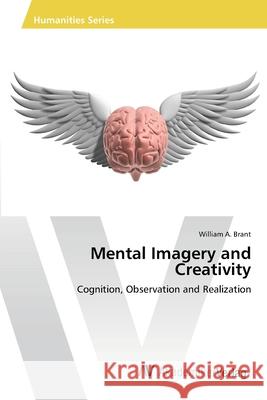Mental Imagery and Creativity » książka
Mental Imagery and Creativity
ISBN-13: 9783639462883 / Angielski / Miękka / 2013 / 236 str.
Mental images, or envisioning things with your "mind's eye," are now studied via multiple levels of observation and involve computational neuroscience, robotics and many disciplines that complement philosophy and form integral parts of cognitive science. MENTAL IMAGERY AND CREATIVITY offers an historical analysis of the use of "mental images" in science. This book also gives many useful illustrations, depicting roles of imagery with 21st century technology, including the usage of imagery, fMRIs and internet connections, allowing people to control virtual avatars or robots at remote distances. Imagery formations and brain imaging techniques allow non-communicative patients, who appear to be in vegetative states, to communicate effectively, despite brain damage. Notwithstanding many 21st century developments of imagery combined with technology and science, many speculative accounts of imagery arose in the 20th century. Philosophic developments, regarding the relation between mental imagery and creativity, are provided in order to compare and contrast speculative and rational foundations. Creativity is defined in relation to problem-solving, inventiveness, art, discovery and cognitive formations of ranges of possibilities, arising before and after realizations (i.e., when one recognizes real and unreal events or solutions), involving images of events, solutions and alternatives.
Mental images, or envisioning things with your "minds eye," are now studied via multiple levels of observation and involve computational neuroscience, robotics and many disciplines that complement philosophy and form integral parts of cognitive science. MENTAL IMAGERY AND CREATIVITY offers an historical analysis of the use of "mental images" in science. This book also gives many useful illustrations, depicting roles of imagery with 21st century technology, including the usage of imagery, fMRIs and internet connections, allowing people to control virtual avatars or robots at remote distances. Imagery formations and brain imaging techniques allow non-communicative patients, who appear to be in vegetative states, to communicate effectively, despite brain damage. Notwithstanding many 21st century developments of imagery combined with technology and science, many speculative accounts of imagery arose in the 20th century. Philosophic developments, regarding the relation between mental imagery and creativity, are provided in order to compare and contrast speculative and rational foundations. Creativity is defined in relation to problem-solving, inventiveness, art, discovery and cognitive formations of ranges of possibilities, arising before and after realizations (i.e., when one recognizes real and unreal events or solutions), involving images of events, solutions and alternatives.











